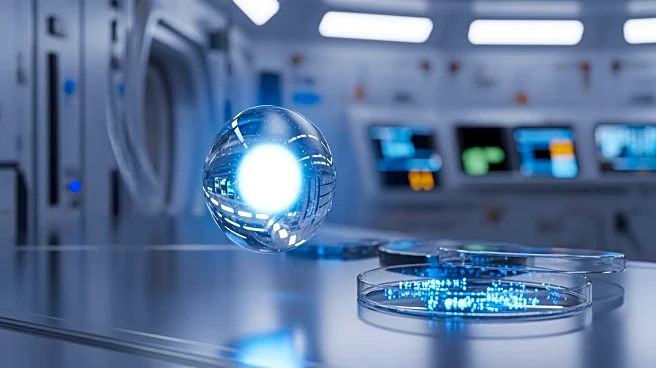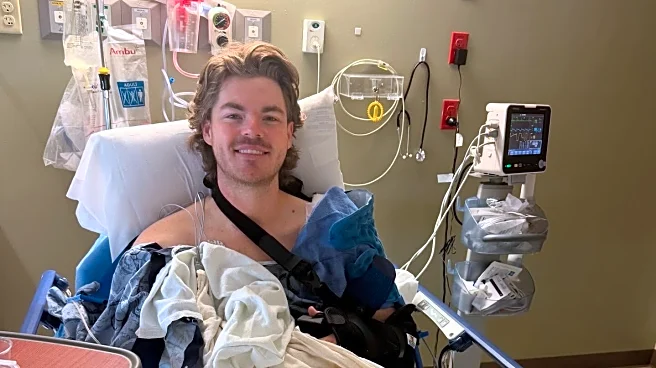What's Happening?
The International Space Station's Expedition 73 crew concluded their work week with studies on fluid physics and stem cells, while preparing for the arrival of new crew members. NASA Flight Engineer Zena
Cardman conducted research in the Destiny laboratory module, installing fluid samples inside a fluorescence microscope to observe particle behavior in fluids. This research aims to improve in-space manufacturing techniques and pollution removal operations. Cardman also processed stem cell samples in the Kibo laboratory module, exploring microgravity's effects on stem cells programmed to change into heart and brain cells. The crew also transferred supplies from the Northrop Grumman Cygnus XL cargo spacecraft, which delivered over 11,000 pounds of cargo.
Why It's Important?
The research conducted on the ISS has significant implications for scientific advancements in medicine and manufacturing. Understanding fluid dynamics in microgravity can lead to improved optical materials and pollution removal techniques, while stem cell research may contribute to treatments for cardiac and neurological disorders. The arrival of new crew members and the ongoing resupply missions ensure the continuous operation and scientific output of the ISS, which remains a critical platform for international collaboration in space exploration and research.
What's Next?
The Cygnus XL cargo spacecraft will be uninstalled from the ISS on November 24, clearing the way for the arrival of the Roscosmos Soyuz MS-28 spacecraft on November 27. This will bring new crew members, including NASA astronaut Chris Williams and Roscosmos cosmonauts Sergey Mikaev and Sergey Kud-Sverchkov. The ISS crew will continue their scientific research and maintenance activities, contributing to the station's long-term mission objectives.











